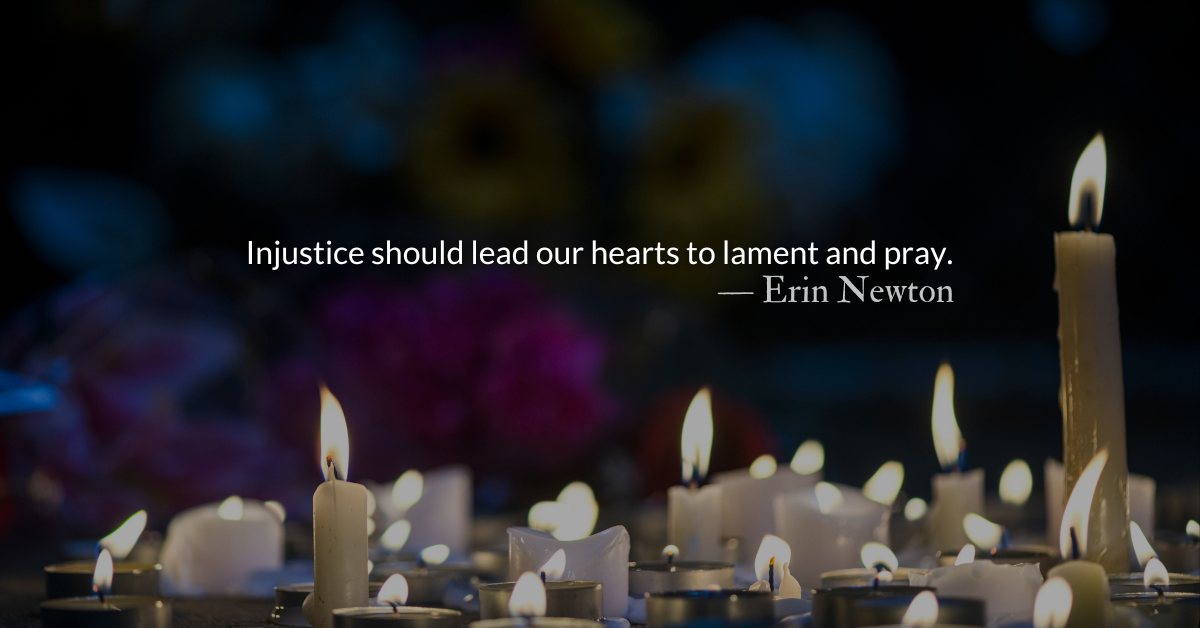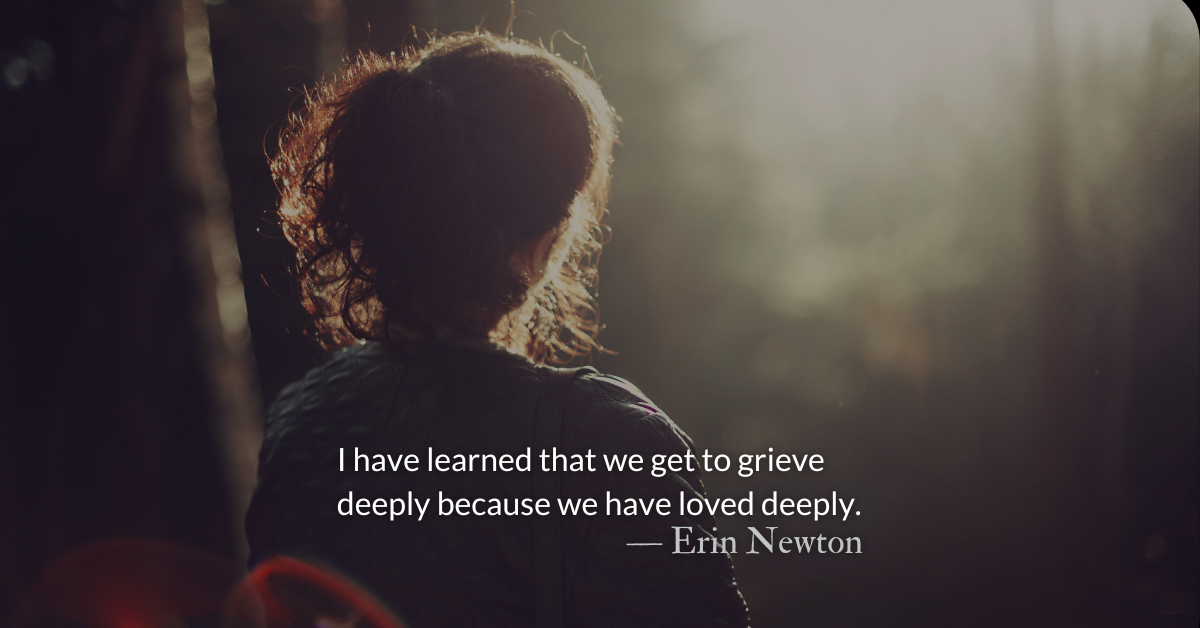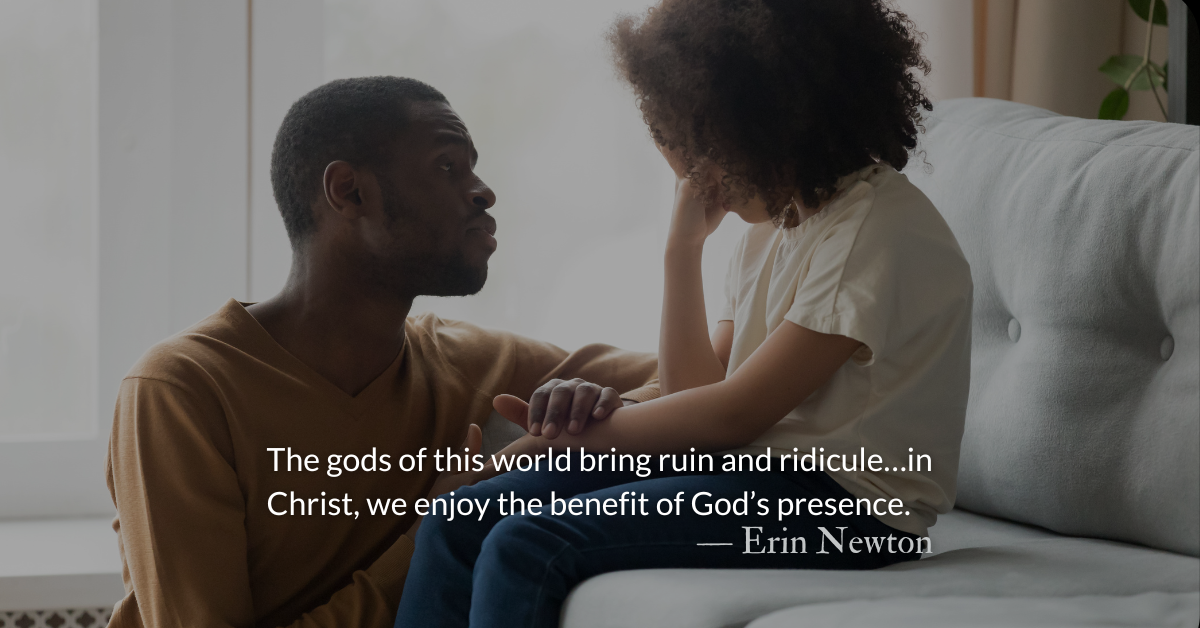Scripture Focus: Psalm 42:5-7
5 Why, my soul, are you downcast?
Why so disturbed within me
Put your hope in God,
for I will yet praise him,
my Savior and my God.
6 My soul is downcast within me;
therefore I will remember you
from the land of the Jordan,
the heights of Hermon—from Mount Mizar.
7 Deep calls to deep
in the roar of your waterfalls;
all your waves and breakers
have swept over me.
Psalm 43:5
5 Why, my soul, are you downcast?
Why so disturbed within me?
Put your hope in God,
for I will yet praise him,
my Savior and my God.
Reflection: Sluggish Grief
By Erin Newton
In the movie, Paddington, one character reflects on his emotional journey of settling into a new place: “My body had traveled fast, but my heart… she took a little longer to arrive.” The heart can be sluggish during grief. It’s frustrating and discouraging.
I wish grief was a cycle; instead, it is a web. Our bodies are bound to the linear progression of time. We are moving from one event to another, but our hearts and minds are stuck in a tangled web of emotions and thoughts.
The repeated phrase, “Why, my soul, are you downcast?” reflects this emotional tangle. The psalmist tries to soothe himself with words of counsel. “Hope in God…Remember the good times.” Oh, I’ve heard those platitudes from others. And I’ve tried to use them to urge my heart into better spirits.
But grief is not linear. The stages—denial, anger, bargaining, depression, acceptance—don’t happen sequentially.
Psalms 42-43 show this type of tangled emotional experience. At first, we see the depth of sadness, “tears have been my food day and night” (Psalm 42.3). Then a joyous memory, “How I used to go to the house of God…with shouts of joy and praise among the festive throng” (Psalm 42.4). Then the declaration of depression, “all your waves and breakers have swept over me.”
The journey of emotional experience is like traveling across the mountains. There is the bright ascent to the peak, the crisp breeze, and clear skies. We gaze upon the view and see the other mountaintops, each basking in the pure sunlight. But to get there, we must descend into the valley, the dark woods.
Amy Carmichael calls this “The Ravine.” It is the painful memory of better days: “Yes, we were one of a festive crowd; was there any happy thing that we did not do? And we think of what used to be, so different from all that is now.”
Our minds know of God’s goodness, the joy of his presence, the hope of better days, but our hearts take a little longer to get there.
“We know that it is true. And yet there is something in the trend of our thoughts that is like the backwash of the waves, as wave after wave breaks on the shore…We have seen the lovely radiance of that upper air. But our feet must walk the ways of earth down that dreary hill, past those somber trees, and into the valley…”
Divine Hours Prayer: The Refrain for the Morning Lessons
Those who sowed with tears will reap with songs of joy.
Those who go out weeping, carrying the seed, will come again with joy, shouldering their sheaves. — Psalm 126.6-7
– From The Divine Hours: Prayers for Summertime by Phyllis Tickle.
Today’s Readings
1 Kings 21 (Listen 4:19)
Psalms 42-43 (Listen 2:32)
Read more about Be With Me
The weight of our sadness reflects the hope of a beautiful life that has been tragically altered.
But we are not alone. God is near to the brokenhearted…
Read The Bible With Us
Join our Bible reading plan. Find meaning in the Bible by reading at a sustainable, two-year pace.
https://mailchi.mp/theparkforum/m-f-daily-email-devotional






